
PLEASE NOTE THIS PAGE IS NOT OPTIMISED FOR MOBILE DEVICES YET
In a world marked by complexity and polycrisis, business stands at a pivotal moment. To enact meaningful change, leaders, particularly those in HR, must confront an existential midlife crisis. This entails challenging the status quo and acknowledging their complicity in perpetuating suffering within organisations.
Preamble: Good Leaders, Unite!
In a world where complexity reigns, where capitalism's grip on society threatens democracy, and where suffering pervades many organizations, we find ourselves at a crossroads. In order to reshape the future of work, leaders must heed the call of transformation, daring to challenge the status quo and driving change for good.
For far too long, executives across functions have grappled with an existential crisis, losing sight of their true purpose and their potential to become a force for positive change. We've professionalized, we've gathered brilliant minds, but the truth is, people and planet are no longer truly at the heart of what we do. We've wandered in the wilderness of indifference, too often lost in a labyrinth of bureaucracy and technology.
The path to real change is not lined with quick fixes or superficial solutions. We must stop to purchase indulgences in the form of sustainability reports or DEI programs, and cease to distract ourselves with the latest technological marvels to atone for our shortcomings.
Our first step is to gain clarity on where exactly we want to lead our organizations. If we're not cautious, the "Future of Work" narrative risks becoming itself hegemonic and instrumental. It promotes a seductive doctrine that urges individuals to conform to ostensibly inevitable external changes, without encouraging critical reflection on our destination and purpose. Rather than asking, "What is the future of work?"—which is descriptive—we should query, "What SHOULD the work of the future be?"
This calls not only for new ways to imagine our organisations, but for a profound, inward journey. Leadership itself has grown morally mute, and it takes bravery to confront our deepest fears, and stand up for what is good. Hence, the second step is a winding road of personal transformation demanding introspection, courage, and radical honesty.
Leaders must shed the chains of dependency on those in power. Good leaders, in and beyond HR, must take the reins of transformation and commit to subordinate effectiveness to #ethics, #humanism and #sustainability. They must once again nurture a dual loyalty, towards both the business and the ideals of their profession. The bedrock of any good organization are good people, and leaders must be willing to lead the way, so that others might follow.
Using HR as an example, we illustrate that leaders must confront their own role in creating and perpetuating the suffering they claim to alleviate. Herein might lie an opportunity for HR to show its metal and step into the void. A new HR has the potential to be the vanguard of a coalition of the willing, fostering systemic change within an unjust economic system. To achieve systemic transformation we must unify practitioners across organizations in a shared quest for what is right and good.
The clock is ticking and it's time to decide which road you are willing to travel. The solemn truth is that if we falter to transform, the #futureofwork will be an exact mirror of our troubled present. So, will you perpetuate the unhappiness of the past, with more of the same but new fancy clothes? Or will you take the courageous leap toward a better world, one where work exudes dignity, the economy serves humanity, and our organizations shine as beacons of a good life for all?
Peter Senge once spoke of leadership as a community's ability to shape its future. Within the HR community, let the spark of unwavering determination to craft a better world of work grow! Let our actions be the testament to our commitment to brighter, more humane organisations. That famous future, the future of work, is already upon us. Friends, let us not squander it!
Preamble: Good Leaders, Unite!
In a world where complexity reigns, where capitalism's grip on society threatens democracy, and where suffering pervades many organizations, we find ourselves at a crossroads. In order to reshape the future of work, leaders must heed the call of transformation, daring to challenge the status quo and driving change for good.
For far too long, executives across functions have grappled with an existential crisis, losing sight of their true purpose and their potential to become a force for positive change. We've professionalized, we've gathered brilliant minds, but the truth is, people and planet are no longer truly at the heart of what we do. We've wandered in the wilderness of indifference, too often lost in a labyrinth of bureaucracy and technology.
The path to real change is not lined with quick fixes or superficial solutions. We must stop to purchase indulgences in the form of sustainability reports or DEI programs, and cease to distract ourselves with the latest technological marvels to atone for our shortcomings.
Our first step is to gain clarity on where exactly we want to lead our organizations. If we're not cautious, the "Future of Work" narrative risks becoming itself hegemonic and instrumental. It promotes a seductive doctrine that urges individuals to conform to ostensibly inevitable external changes, without encouraging critical reflection on our destination and purpose. Rather than asking, "What is the future of work?"—which is descriptive—we should query, "What SHOULD the work of the future be?"
This calls not only for new ways to imagine our organisations, but for a profound, inward journey. Leadership itself has grown morally mute, and it takes bravery to confront our deepest fears, and stand up for what is good. Hence, the second step is a winding road of personal transformation demanding introspection, courage, and radical honesty.
Leaders must shed the chains of dependency on those in power. Good leaders, in and beyond HR, must take the reins of transformation and commit to subordinate effectiveness to #ethics, #humanism and #sustainability. They must once again nurture a dual loyalty, towards both the business and the ideals of their profession. The bedrock of any good organization are good people, and leaders must be willing to lead the way, so that others might follow.
Using HR as an example, we illustrate that leaders must confront their own role in creating and perpetuating the suffering they claim to alleviate. Herein might lie an opportunity for HR to show its metal and step into the void. A new HR has the potential to be the vanguard of a coalition of the willing, fostering systemic change within an unjust economic system. To achieve systemic transformation we must unify practitioners across organizations in a shared quest for what is right and good.
The clock is ticking and it's time to decide which road you are willing to travel. The solemn truth is that if we falter to transform, the #futureofwork will be an exact mirror of our troubled present. So, will you perpetuate the unhappiness of the past, with more of the same but new fancy clothes? Or will you take the courageous leap toward a better world, one where work exudes dignity, the economy serves humanity, and our organizations shine as beacons of a good life for all?
Peter Senge once spoke of leadership as a community's ability to shape its future. Within the HR community, let the spark of unwavering determination to craft a better world of work grow! Let our actions be the testament to our commitment to brighter, more humane organisations. That famous future, the future of work, is already upon us. Friends, let us not squander it!


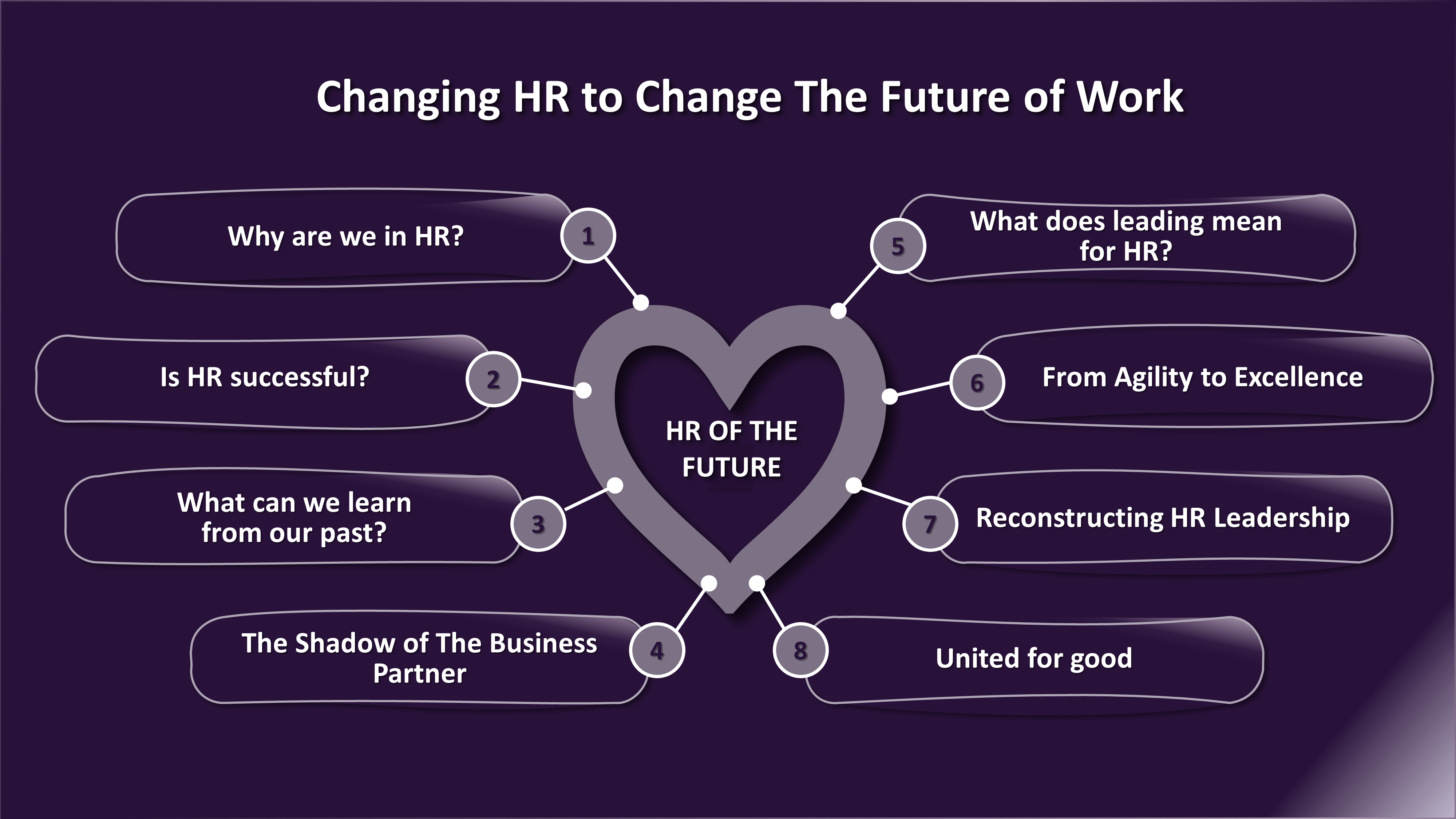
Introduction
Welcome, everyone! It's a genuine pleasure to share some further reflections on a topic that holds much relevance for us all: The Future of Work. In a world where the average person spends over 100,000 hours working, where more than 80% of adults deeply identify with their job roles, and where employment still far too often creates significant unhappiness, the imperative is clear—we must ensure that work becomes a positive force for as many people as possible.
And we firmly believe that this requires leadership. Leaders, across the board, need to not only deepen their understanding of what constitutes good work and actively contribute to its realization, but they must also scrutinize their own role within organisational systems, and assess their own capacity for transformative change, both personally and institutionally. Seizing the opportunity of the recent global HR Congress, we turned the spotlight on a pivotal group of leaders – those in HR. Why HR? Because, more than any other leaders, we believe HR leaders should be the custodians of good work. After all, HR is all about people, isn’t it? But, here’s the twist: when Antoinette and I delved into the data, to be perfectly honest, we didn’t really see it. Thus, we decided to kick off the Congress with a gentle provocation: we suggest the future of work is looking increasingly bleak, because leaders – particularly those in HR – find themselves increasingly stuck.
But let us start from the beginning. Over recent years, we’ve witnessed an explosion of new roles proposed for HR. It’s remarkable – we're truly world class at inventing new positions. Can you spot some outlandish ones? Astoundingly, four out of the top five new "job roles on the rise in 2023" belong to HR! The lone outlier? A 'truck driver.' And yet, despite this feverish creativity, genuine transformation seems to be extremely rare. So, our hypothesis is that all this variety masks a deep and unexamined identity crisis. We suspect that as a function, HR has willingly surrendered to the bottom line, and today, we'll try to show you why.
But who are we to make such bold claims? And why should you listen to us over the myriad others promising you a human resource paradise? Firstly, because we're not here to sell anything. Secondly, because we truly care about HR and, most importantly, because we’ve spent the bulk of our careers trying to figure out how to craft better organisations.Our credentials are on the slide, but in a nutshell, today, Antoinette will take up her role as an HR expert while I'll be seeking to draw from my experience in transformation and leadership.
Together, over the next 20 minutes, we aim to do two things. Firstly, we want to share with you a short retrospective of HR across its history. In an era where the noise of social media crowds out critical analysis, we want to dig a little deeper. In the second part, we want to explore how HR can free itself from what we will suggest is a deliberate stagnation. We firmly believe it is possible to change. But there are no simple fixes. Change demands substantial investment, determination and, above all, the willingness to face ourselves. It will need courageous people like I’m certain all of you who are watching are. So, are you ready to embark on this little journey together?
Introduction
Welcome, everyone! It's a genuine pleasure to share some further reflections on a topic that holds much relevance for us all: The Future of Work. In a world where the average person spends over 100,000 hours working, where more than 80% of adults deeply identify with their job roles, and where employment still far too often creates significant unhappiness, the imperative is clear—we must ensure that work becomes a positive force for as many people as possible.
And we firmly believe that this requires leadership. Leaders, across the board, need to not only deepen their understanding of what constitutes good work and actively contribute to its realization, but they must also scrutinize their own role within organisational systems, and assess their own capacity for transformative change, both personally and institutionally. Seizing the opportunity of the recent global HR Congress, we turned the spotlight on a pivotal group of leaders – those in HR. Why HR? Because, more than any other leaders, we believe HR leaders should be the custodians of good work. After all, HR is all about people, isn’t it? But, here’s the twist: when Antoinette and I delved into the data, to be perfectly honest, we didn’t really see it. Thus, we decided to kick off the Congress with a gentle provocation: we suggest the future of work is looking increasingly bleak, because leaders – particularly those in HR – find themselves increasingly stuck.
But let us start from the beginning. Over recent years, we’ve witnessed an explosion of new roles proposed for HR. It’s remarkable – we're truly world class at inventing new positions. Can you spot some outlandish ones? Astoundingly, four out of the top five new "job roles on the rise in 2023" belong to HR! The lone outlier? A 'truck driver.' And yet, despite this feverish creativity, genuine transformation seems to be extremely rare. So, our hypothesis is that all this variety masks a deep and unexamined identity crisis. We suspect that as a function, HR has willingly surrendered to the bottom line, and today, we'll try to show you why.
But who are we to make such bold claims? And why should you listen to us over the myriad others promising you a human resource paradise? Firstly, because we're not here to sell anything. Secondly, because we truly care about HR and, most importantly, because we’ve spent the bulk of our careers trying to figure out how to craft better organisations.Our credentials are on the slide, but in a nutshell, today, Antoinette will take up her role as an HR expert while I'll be seeking to draw from my experience in transformation and leadership.
Together, over the next 20 minutes, we aim to do two things. Firstly, we want to share with you a short retrospective of HR across its history. In an era where the noise of social media crowds out critical analysis, we want to dig a little deeper. In the second part, we want to explore how HR can free itself from what we will suggest is a deliberate stagnation. We firmly believe it is possible to change. But there are no simple fixes. Change demands substantial investment, determination and, above all, the willingness to face ourselves. It will need courageous people like I’m certain all of you who are watching are. So, are you ready to embark on this little journey together?

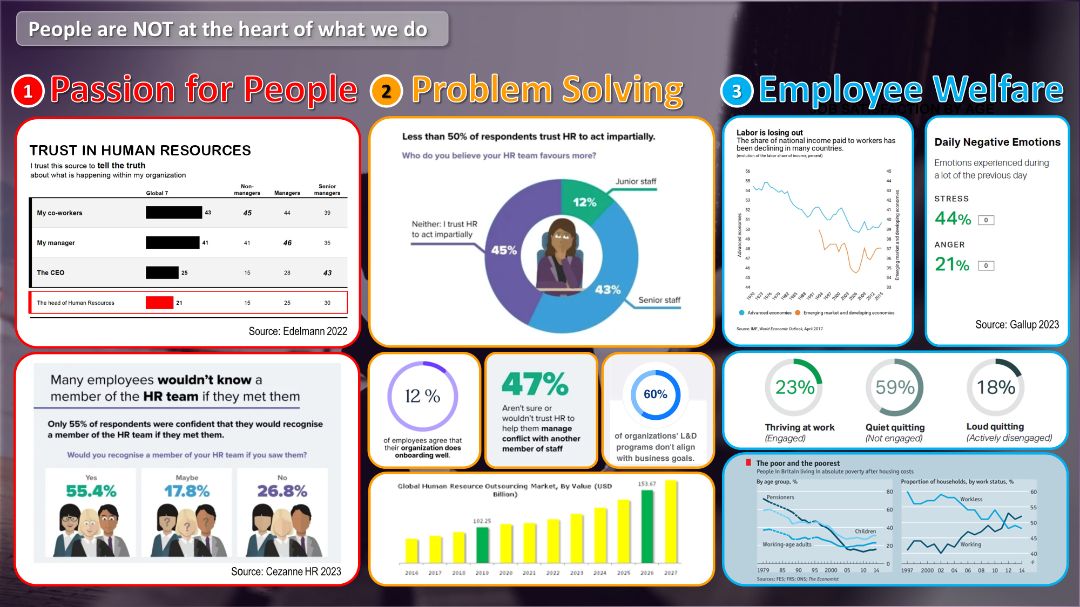

1. HR Retrospective
Why do people venture into HR?
Our research shows many reasons why individuals join HR. However, three motivations consistently stand out: a passion for working with people, a commitment to defending workers' rights, and a pragmatic drive to seek viable solutions when workplace conflicts arise. Maybe let’s have a quick show of hands: do any of these resonate with the discussions you just had?
Considering these goals, how successful do you think HR has been?
Well, the answer here is complicated. A lot of it depends, as we will hear in a second, on circumstances. However, across all the surveys three points crucially stand out:
- HR, regrettably, has become the least trusted function in the organisation, except among executives. Yet even they aren’t convinced that HR contributes significantly to the bottom line.
- In many cases, HR is perceived as ineffective in addressing organizational tensions, let alone deliver reliable services. And many wouldn’t even recognise us at the watercooler.
- And when it comes to employee welfare, the reality is disheartening: most workers have been losing out. So to put it into scientific slang: "on average we did not fare very well"!
Now, that’s puzzling, isn’t it? We all claim to cherish people, but the perception of HR is quite the opposite. What’s behind the disconnect?
Indeed, that’s the million-dollar question. We first went through a lot of popular HRM literature, and there we found one resounding message: It wasn’t us! HR is innocent, we swear! It’s the line managers who give us a hard time, it’s the vendors who can’t run their systems, it’s the workers who lack a growth mindset – And don’t even get us started on those Gen Z folks who just don’t want to work! Change is impossible because everybody around us is standing still!
But you know, that explanation seemed a tad too easy, so we took out our shovels and dug a little deeper.
We suggest HR has essentially navigated through four distinct phases across the last century
- PATERNALISM: At the beginning of the industrial revolution, HR emerged to support early industrialists and family patriarchs striving for better health and living conditions in their factories.
- POWER: Then, amid deteriorating work conditions and increasing unionisation, HR pivoted to manage industrial power relations, ensuring orderly production.
- PROCESS: Post-World War II, HR expanded rapidly to facilitate ever larger-scale of business with professional selection, training, and management. Shortly afterwards, when social democracies demanded greater worker protection the human relations movement emerged, seeking to balance performance and well-being.
- PROFIT: And, finally, as neoliberalism and global corporate expansion surged in the '80s, HR enthusiastically embraced high-performance cultures and a 'maximising profit' narrative.
So, by and large, it seems HR has readily conformed itself with all the trends in the evolution of modern capitalism. Starting undoubtedly with a strong focus on humanistic values, it gradually drifted with the currents toward ever greater instrumentalization.
1. HR Retrospective
Why do people venture into HR?
Our research shows many reasons why individuals join HR. However, three motivations consistently stand out: a passion for working with people, a commitment to defending workers' rights, and a pragmatic drive to seek viable solutions when workplace conflicts arise. Maybe let’s have a quick show of hands: do any of these resonate with the discussions you just had?
Considering these goals, how successful do you think HR has been?
Well, the answer here is complicated. A lot of it depends, as we will hear in a second, on circumstances. However, across all the surveys three points crucially stand out:
- HR, regrettably, has become the least trusted function in the organisation, except among executives. Yet even they aren’t convinced that HR contributes significantly to the bottom line.
- In many cases, HR is perceived as ineffective in addressing organizational tensions, let alone deliver reliable services. And many wouldn’t even recognise us at the watercooler.
- And when it comes to employee welfare, the reality is disheartening: most workers have been losing out. So to put it into scientific slang: "on average we did not fare very well"!
Now, that’s puzzling, isn’t it? We all claim to cherish people, but the perception of HR is quite the opposite. What’s behind the disconnect?
Indeed, that’s the million-dollar question. We first went through a lot of popular HRM literature, and there we found one resounding message: It wasn’t us! HR is innocent, we swear! It’s the line managers who give us a hard time, it’s the vendors who can’t run their systems, it’s the workers who lack a growth mindset – And don’t even get us started on those Gen Z folks who just don’t want to work! Change is impossible because everybody around us is standing still!
But you know, that explanation seemed a tad too easy, so we took out our shovels and dug a little deeper.
We suggest HR has essentially navigated through four distinct phases across the last century
- PATERNALISM: At the beginning of the industrial revolution, HR emerged to support early industrialists and family patriarchs striving for better health and living conditions in their factories.
- POWER: Then, amid deteriorating work conditions and increasing unionisation, HR pivoted to manage industrial power relations, ensuring orderly production.
- PROCESS: Post-World War II, HR expanded rapidly to facilitate ever larger-scale of business with professional selection, training, and management. Shortly afterwards, when social democracies demanded greater worker protection the human relations movement emerged, seeking to balance performance and well-being.
- PROFIT: And, finally, as neoliberalism and global corporate expansion surged in the '80s, HR enthusiastically embraced high-performance cultures and a 'maximising profit' narrative.
So, by and large, it seems HR has readily conformed itself with all the trends in the evolution of modern capitalism. Starting undoubtedly with a strong focus on humanistic values, it gradually drifted with the currents toward ever greater instrumentalization.



2. The Anatomy of A Mid-Life Crisis
And that’s a paradox, isn’t it? We've all learned that culture change is rooted in those underlying assumptions and values, below the surface. So, if HR had strongly humanistic values, how did it drift off course?
Unfortunately, it turns out the fashionable iceberg model is as popular as it is simplistic. So, it’s time to upgrade our toolkit: out with Schein, and in comes complexity!
Now, without diving too deep into the details – you find all the references on our web site, let me share a point from the operational coal face. As it happens, in complex business environments when we dive beneath the surface, we seldom find a neatly ordered set of shared values and assumptions that we can plug into some regression analysis or bake into some culture change programme to create the future. Conversely, the water is often pretty dark and murky and we face dangerous sharks and treacherous currents. In more technical speak, within complex social systems, we encounter three essential entities: people, culture, and social structures, each with its unique powers. Their combined interactions generate complex mechanisms that MIGHT, under certain conditions, translate into certain constellations, that we MIGHT detect above the waterline. So it is all a bit more complex. But what does this mean for HR?
Simply put, it means that we can't just pick and choose our roles in complex social systems. There is no action without context. Often roles predate us and our character and identity emerge dynamically from the interplay between dominant narratives, our evolving agency, and relational dynamics. This also implies that the popular idea that we can change culture by simply changing mindsets is highly simplistic. It takes evolution of all these elements in the system in order to generate sustainable transformation. Plus, speaking from experience, it sometimes needs a lot of courage to fend off the lurking 'sharks' of orthodoxy and tradition.
So, maybe we could say that HR was indeed a victim of circumstances.
- Right from its inception, HR occupied what is called a marginal leadership position. That is a nice way for saying that despite our relentless proclamation that "people are at the heart of our business" HR had very little power. Its profession was loose, its authorisation uncertain, and its influence limited, sparking existential anxiety and a deep desire to carve out a role that was both recognised and effective.
- Initially, that wasn’t a big issue until the context shifted towards massive instrumentalization. Because then, HR got trapped by those powerful currents below the surface. In order to wield influence within the business, HR basically had to justify its existence by instrumentalising itself.
- And that’s when the idea of the business partner discourse was born, which seemed a truly brilliant idea at the time.
2. The Anatomy of A Mid-Life Crisis
And that’s a paradox, isn’t it? We've all learned that culture change is rooted in underlying assumptions and values, below the surface. So if HR had strong values, how did it drift off course?
Unfortunately, it turns out the fashionable iceberg model is as popular as it is simplistic. So, it’s time to upgrade our toolkit: out with Schein, and in comes complexity!
Now, without diving too deep into the details – you find all the references on our web site, let me share a point from the operational coal face. As it happens, in complex business environments when we dive beneath the surface, we seldom find a neatly ordered set of shared values and assumptions that we can plug into some regression analysis or change programme to create the future. Conversely, the water is often pretty dark and murky and we face dangerous sharks and treacherous currents. In more technical speak, within social systems, we encounter three essential entities: people, culture, and social structures, each with its unique powers. Their combined interactions generate complex mechanisms that MIGHT, under certain conditions, translate into certain constellations, that we MIGHT detect above the water. But what does this mean for HR?
Simply put, it means that we can't just pick and choose our roles in complex social systems. Often roles predate us and our character and identity emerge dynamically from the interplay between narratives, our evolving agency, and relational dynamics. This also implies that the popular idea that we can change culture by simply changing mindsets is highly simplistic. It takes evolution of all elements in the system to generate transformation. Plus, a lot of courage to fend off the lurking 'sharks' of orthodoxy.
So, maybe we could say that HR was indeed a victim of circumstances.
Right from its inception, HR occupied what is called a marginal leadership position. That is a nice way for saying that despite our relentless proclamation that "people are at the heart of our business" HR had very little power. Its profession was loose, its authorisation uncertain, and its influence limited, sparking existential anxiety and a deep desire to carve out a role that was both recognised and effective.
Initially, that wasn’t a big issue until the context shifted towards massive instrumentalization. Because then, HR got trapped by the currents below the surface. In order to wield influence within the business, HR basically had to justify its existence by instrumentalising itself.
And that’s when the idea of the business partner discourse was born, which seemed a truly brilliant idea at the time.
All research shows HR's extraordinary effort to ascend to strategic significance over the past three decades. But truth be told, it always was, in essence, a dangerous game of swimming with the sharks. And, unfortunately, HR heroically failed.
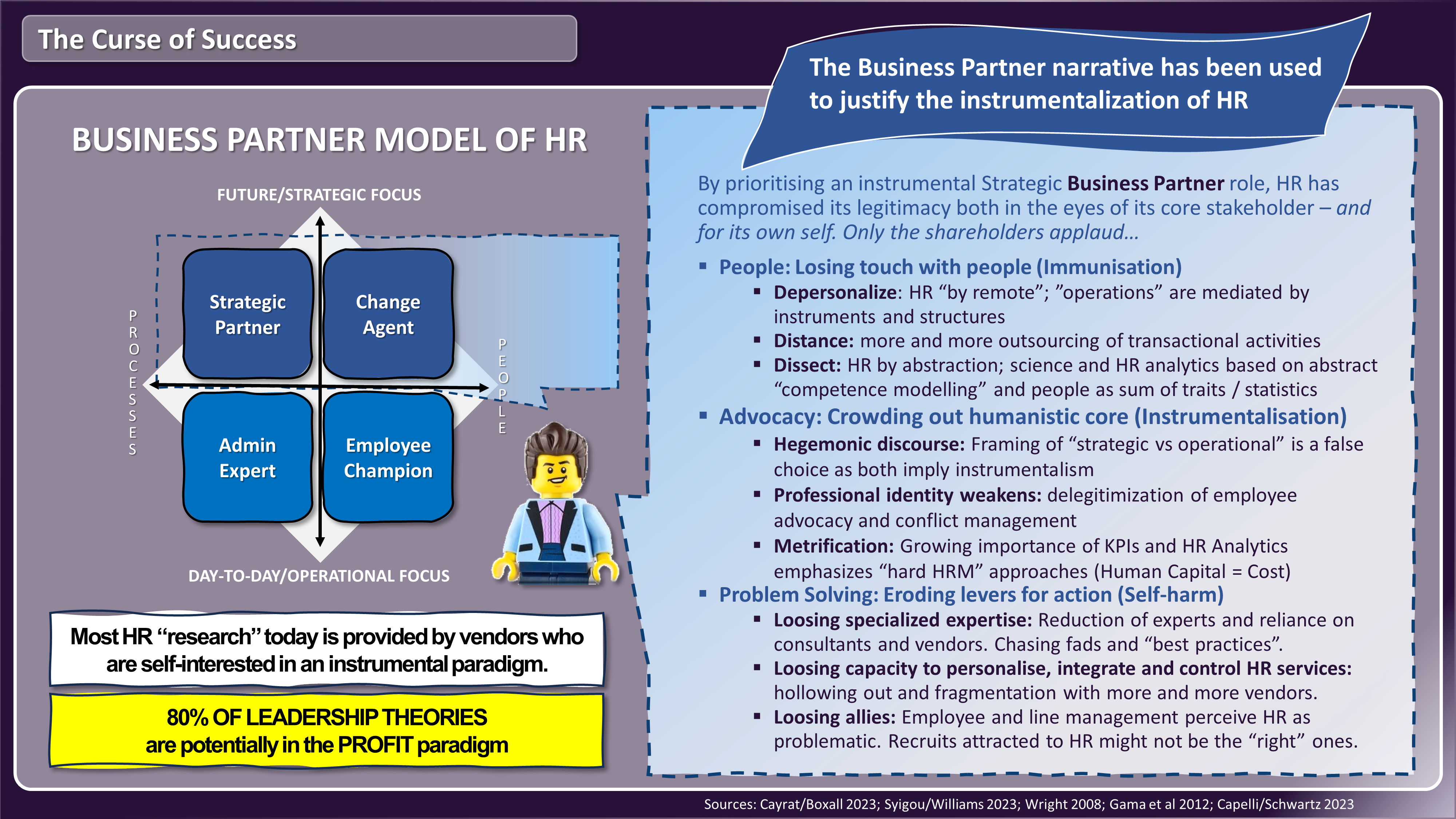


3. The Sinister Shadow of the Business Partner Discourse
All research shows HR's extraordinary effort to ascend to strategic significance over the past three decades. But truth be told, it always was, in essence, a dangerous game of swimming with the sharks. And, unfortunately, HR heroically failed.
- Instead of getting closer to the people, HR found itself disconnected from the very individuals it aimed to serve. The imprudent separation between strategic advice and day-to-day people operations led to HR management by “remote control” and algorithm, booming HR outsourcing and increasing depersonalization. This is why HR often goes unrecognized in the organisational corridors. And, of course, vendors absolutely loved it! It's no coincidence that 90% of HR "research" today is sponsored by suppliers.
- Instead of championing labour rights, HR often operated as a subsidiary of the finance department. It’s original humanism faded away very quickly when the emphasis shifted towards numbers, KPIs, performance-based pay, and the relentless construction of "business cases" to support Human Capital-ism.
- And finally, HR inadvertently undermined its own capacity to tackle real-world issues, because the three-tier model (anyone?), excessive outsourcing and a single-minded focus on rolling out systems gradually chipped away at HR's core competencies and flexibility, eroding both its unique knowledge and its capacity to customize its services. And it also lost valuable allies.
But, of course, you might counter, 'Hold on a second! That’s too pessimistic! What about COVID?! Didn’t the whole world embrace human-centric values, purpose-led organizations, and a global drive for planetary well-being?' Well, that’s true. Or better: that’s truly what people claimed.
Because unfortunately, it wasn't necessarily what they did. Sure, a few solar panels went up on head offices, Chief Purpose Officers were appointed, and CEO bonuses were tied to rather meaningless ESG targets. Lots of businesses became excellent in green, white or blue-washing and we created a 1.5 trillion-dollar well-being market, mostly selling quick fixes. But substantive change was stunningly absent across the board.
As for HR, that initial revival of humanism was swiftly overshadowed by a focus on the technicalities of remote working processes, and agility, and performance. Once the COVID-tech bubble subsided and vendors stopped celebrating, we saw thousands of layoffs to catapult stock markets to all-time highs. And we continued to endorse and even accelerate a plethora of toxic practices that are neither ethically nor scientifically sound.
This really is not to discount the genuine efforts of numerous organizations, particularly smaller ones, and of wonderful colleagues who every single day seek to make a positive difference. Rather, it's an urgent recognition that our businesses still too often cause human suffering and squander human potential. We believe HR has not yet faced that critical self-reflection necessary to keep those 'sharks' at bay. This is by the way what Mats Alvesson calls 'functional stupidity’. Lots of highly intelligent people end up doing remarkably foolish things. And let’s be honest: unless we shift, the future of work will only amplify the troubles for our people, and HR might quickly become obsolete.
3. The Sinister Shadow of the Business Partner Discourse
All research shows HR's extraordinary effort to ascend to strategic significance over the past three decades. But truth be told, it always was, in essence, a dangerous game of swimming with the sharks. And, unfortunately, HR heroically failed.
- Instead of getting closer to the people, HR found itself disconnected from the very individuals it aimed to serve. The imprudent separation between strategic advice and day-to-day people operations led to HR management by “remote control” and algorithm, booming HR outsourcing and increasing depersonalization. This is why HR often goes unrecognized in the organisational corridors. And, of course, vendors absolutely loved it! It's no coincidence that 90% of HR "research" today is sponsored by suppliers.
- Instead of championing labour rights, HR often operated as a subsidiary of the finance department. It’s original humanism faded away very quickly when the emphasis shifted towards numbers, KPIs, performance-based pay, and the relentless construction of "business cases" to support Human Capital-ism.
- And finally, HR inadvertently undermined its own capacity to tackle real-world issues, because the three-tier model (anyone?), excessive outsourcing and a single-minded focus on rolling out systems gradually chipped away at HR's core competencies and flexibility, eroding both its unique knowledge and its capacity to customize its services. And it also lost valuable allies.
But, of course, you might counter, 'Hold on a second! That’s too pessimistic! What about COVID?! Didn’t the whole world embrace human-centric values, purpose-led organizations, and a global drive for planetary well-being?' Well, that’s true. Or better: that’s truly what people claimed.
Because unfortunately, it wasn't necessarily what they did. Sure, a few solar panels went up on head offices, Chief Purpose Officers were appointed, and CEO bonuses were tied to rather meaningless ESG targets. Lots of businesses became excellent in green, white or blue-washing and we created a 1.5 trillion-dollar well-being market, mostly selling quick fixes. But substantive change was stunningly absent across the board.
As for HR, that initial revival of humanism was swiftly overshadowed by a focus on the technicalities of remote working processes, and agility, and performance. Once the COVID-tech bubble subsided and vendors stopped celebrating, we saw thousands of layoffs to catapult stock markets to all-time highs. And we continued to endorse and even accelerate a plethora of toxic practices that are neither ethically nor scientifically sound.
This really is not to discount the genuine efforts of numerous organizations, particularly smaller ones, and of wonderful colleagues who every single day seek to make a positive difference. Rather, it's an urgent recognition that our businesses still too often cause human suffering and squander human potential. We believe HR has not yet faced that critical self-reflection necessary to keep those 'sharks' at bay. This is by the way what Mats Alvesson calls 'functional stupidity’. Lots of highly intelligent people end up doing remarkably foolish things. And let’s be honest: unless we shift, the future of work will only amplify the troubles for our people, and HR might quickly become obsolete.


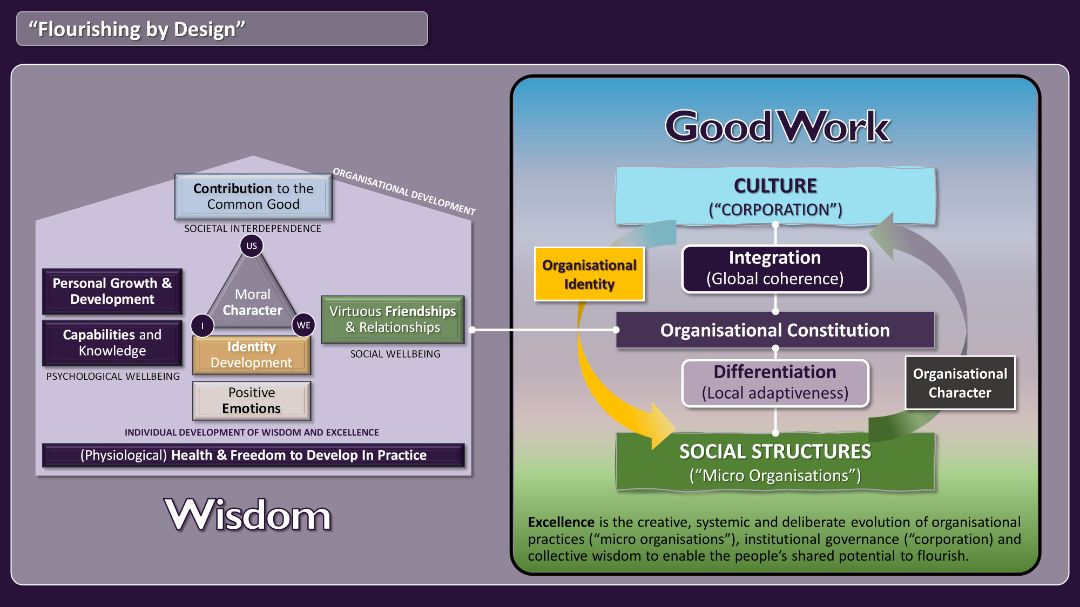
4. Reconstructing Leadership
Which brings us to the second (and hopefully brighter) part of our short journey. What can we do? Where do we lead from here? How can we get to a new horizon for work, to borrow from the conference theme of the recent HR Congress, “where – quote, unquote – “the well-being of individuals and the nurturing of humane workplaces have taken centre stage”. Is it even possible?
Yes, we think it is. But It’s not gonna be easy. Our first step is to gain clarity on where exactly we want to lead our organizations. Not: what is the future of work, which is descriptive, but what SHOULD the work of the future be? And there are so many ideas, proposals, and leadership models scattered all across cyberspace that it has become hard to know what to believe in. That’s why, two years ago, Antoinette and I embarked on an inquiry to figure out what exactly makes organizations good, and one thing became immediately evident.
Most of what’s being proposed as “new” today remains entrenched in an instrumentalist paradigm. Concepts like agility, net zero, net positive, sustainability, ESG, SDG, center around "doing less harm" while essentially maintaining the status quo. And if we are not careful, the “Future of Work” narrative itself becomes instrumental, by emphasising the necessity for people to submit themselves to inescapable external changes without questioning where we are going and why. But reducing bureaucracy, becoming agile or offsetting co2 emissions isn't the same as doing good. Doing good is about who we are and how to bring to life the best in ourselves at and through work.
Our simple idea is that we need to re-embed our organisations, as the vital link between a fulfilling life and a prosperous society. Organisations attain excellence by enabling people to develop -internally - while contributing collectively to a good economy and society - externally. And let’s be clear. We are not arguing against making organisations more efficient, customer-centric or adaptive, but we do suggest to do it for a different purpose. Profit is NOT an end in itself, but must serve to enable social flourishing and justice on a larger scale.
But that clearly takes more than new narratives or polished purpose statements. Firstly, as we have seen, we must cultivate all those elements below the Organisational surface, from the underlying cultural foundations—like language, symbols, metrics, and policies—to the structural frameworks, routines, and systems, and the holistic development of individuals and communities.
This calls for a new model to look at Organisations. In our work, we emphasize the intentional development of virtuous social practices, which we call 'micro-organizations,' alongside the refinement of corporate institutions and governance, which we frame as 'corporation', and of course people. Here our focus lies not just on competencies, but character, virtues and wisdom.
But its not just about each component, but also about the connection between them. Truly human-centric organizations need to nurture a moral environment that combines care, integrity and compassion with a genuine commitment toward mutual elevation for the greater good. To do so, we must continue to evolve organizational design, striking a more progressive balance between local affordances within those micro-organizations, individual growth, and the need to foster shared learning and a coherent external value proposition.
And that’s difficult. In our research, we can clearly see that with growing scale most corporations turn instrumentalist. To counter this, we believe that we must overlay the existing dominant financial governance with disciplines for collective reflection and participation, essentially creating a living organizational constitution. For instance, at ING, HR sponsored a so-called leadership council that collectively steered the ongoing transformation. The ultimate goal is to first connect people, structures and culture, thus nurturing organisational wisdom, identity and character, and then to enable a reflective equilibrium that continually actualises the potential of the organisation, within its specific contingent ecosystem, to create social flourishing.
4. Reconstructing Leadership
Which brings us to the second (and hopefully brighter) part of our short journey. What can we do? Where do we lead from here? How can we get to a new horizon for work, to borrow from the conference theme of the recent HR Congress, “where – quote, unquote – “the well-being of individuals and the nurturing of humane workplaces have taken centre stage”. Is it even possible?
Yes, we think it is. But It’s not gonna be easy. Our first step is to gain clarity on where exactly we want to lead our organizations. Not: what is the future of work, which is descriptive, but what SHOULD the work of the future be? And there are so many ideas, proposals, and leadership models scattered all across cyberspace that it has become hard to know what to believe in. That’s why, two years ago, Antoinette and I embarked on an inquiry to figure out what exactly makes organizations good, and one thing became immediately evident.
Most of what’s being proposed as “new” today remains entrenched in an instrumentalist paradigm. Concepts like agility, net zero, net positive, sustainability, ESG, SDG, center around "doing less harm" while essentially maintaining the status quo. And if we are not careful, the “Future of Work” narrative itself becomes instrumental, by emphasising the necessity for people to submit themselves to inescapable external changes without questioning where we are going and why. But reducing bureaucracy, becoming agile or offsetting co2 emissions isn't the same as doing good. Doing good is about who we are and how to bring to life the best in ourselves at and through work.
Our simple idea is that we need to re-embed our organisations, as the vital link between a fulfilling life and a prosperous society. Organisations attain excellence by enabling people to develop -internally - while contributing collectively to a good economy and society - externally. And let’s be clear. We are not arguing against making organisations more efficient, customer-centric or adaptive, but we do suggest to do it for a different purpose. Profit is NOT an end in itself, but must serve to enable social flourishing and justice on a larger scale.
But that clearly takes more than new narratives or polished purpose statements. Firstly, as we have seen, we must cultivate all those elements below the Organisational surface, from the underlying cultural foundations—like language, symbols, metrics, and policies—to the structural frameworks, routines, and systems, and the holistic development of individuals and communities.
This calls for a new model to look at Organisations. In our work, we emphasize the intentional development of virtuous social practices, which we call 'micro-organizations,' alongside the refinement of corporate institutions and governance, which we frame as 'corporation', and of course people. Here our focus lies not just on competencies, but character, virtues and wisdom.
But its not just about each component, but also about the connection between them. Truly human-centric organizations need to nurture a moral environment that combines care, integrity and compassion with a genuine commitment toward mutual elevation for the greater good. To do so, we must continue to evolve organizational design, striking a more progressive balance between local affordances within those micro-organizations, individual growth, and the need to foster shared learning and a coherent external value proposition.
And that’s difficult. In our research, we can clearly see that with growing scale most corporations turn instrumentalist. To counter this, we believe that we must overlay the existing dominant financial governance with disciplines for collective reflection and participation, essentially creating a living organizational constitution. For instance, at ING, HR sponsored a so-called leadership council that collectively steered the ongoing transformation. The ultimate goal is to first connect people, structures and culture, thus nurturing organisational wisdom, identity and character, and then to enable a reflective equilibrium that continually actualises the potential of the organisation, within its specific contingent ecosystem, to create social flourishing.
4. Reconstructing HR Leadership
Which brings us to the second part of our short journey. What can we do? Where do we lead from here? How can we get to this new hr horizon, to borrow the conference theme: “where the well-being of individuals and the nurturing of humane workplaces have taken centre stage”. Is it even possible?
Yes, we think it is. But it won’t be easy. Our first step is to gain clarity on where exactly we want to lead our organizations. There are so many ideas, proposals, and leadership models scattered across cyberspace that it has become hard to know what to believe in. Hence, two years ago, Antoinette and I embarked on an inquiry to figure out what makes organizations good, and one thing became immediately evident.
Most of what’s being proposed today remains entrenched in an instrumentalist paradigm. Concepts like net zero, net positive, sustainability, ESG center around "doing less harm" while essentially maintaining the status quo. But reducing bureaucracy or offsetting co2 isn't the same as doing good. Doing good is about who we are and how to bring to life the best in ourselves through and at work.
The simple idea here is that we need to re-embed our organisations, as the vital link between a fulfilling life and a prosperous society. Organisations can attain excellence by enabling people to develop internally, while contributing collectively to a good economy and society externally. And let’s be clear. We are not arguing against making organisations more efficient and adaptive, but we suggest to do it for a different reason. Profit isn't an end in itself but serves to enable flourishing and social justice on a larger scale.
But that takes more than new narratives or polished purpose statements. Firstly, as we have seen, we must cultivate all those elements below the Organisational surface, from the underlying cultural foundations—language, symbols, metrics, and policies—to the structural frameworks, routines, systems, and the holistic development of individuals and communities.
This calls for a new model to look at the Organisation. In our work, we emphasize the intentional development of virtuous social practices, which we term 'micro-organizations,' alongside the refinement of corporate institutions and governance, framed as the 'corporation', and individuals. Here our focus is not just on competencies, but character, virtues and wisdom.
But its not just about each component, but about the connection between them. Truly human-centric organizations need to nurture a moral environment that combines care, integrity and compassion with a genuine commitment toward mutual elevation for the greater good. To do so, we must continue to evolve the organizational design, striking a progressive balance between local affordances within micro-organizations, individual growth, and the need to foster shared learning and a coherent external value proposition. And that’s difficult. In our research, we can clearly see that with growing scale corporations turn instrumentalist. To counter this, we must overlay the existing financial governance with disciplines for collective reflection, essentially creating a living organizational constitution. For instance, at ING, HR sponsored a global leadership council that collectively steered our ongoing transformation. The ultimate goal is to connect people, structures and culture, nurturing organisational wisdom, identity and character, and to enable a reflective equilibrium that actualises the potential of the organisation to create social flourishing.



5. Leading the Transformation of Work
Or to put it more simply, we must learn to care and be intentional about our Organisation's moral climate exactly like we have learned to care for the environmental climate.
But how does all of this translate into action? Firstly, we must focus MORE on our people. This involves character-based selection and promotion, personalized development plans, and strict adherence to that famous 'no asshole' rule. Secondly, we need to much more DELIBERATELY evolve management structures and practices to craft that reflective holding space for mutual growth and creativity. Thirdly, we must revise corporate governance structures and institutions - like success measures, reward and recognition policies, or team affordances, to embed virtuous principles and actively develop and foster positive impact.
Key here is to evolve people and organizational practices holistically and at the same time, across various levels, avoiding fragmentation between specializations or vendors.
But, there is always a “but”: from our experience, the maturity of an organisation can never transcend the wisdom of its leaders. Therefore, we must also deliberately develop leadership. And there's a lot to do: a recent study by the CMI (Chartered Management Institute) found that 52% of leaders lack professional qualifications and 50% of new leaders fail within the first year.
There can be no doubt that HR is in a great position to foster positive transformation. It holds many critical levers to influence the context, both within HR and across the policies, structures, and success metrics of the broader organization. We've gathered some initial ideas, and you will find some of them on our website, but we’d love to hear from you: if you're willing to share your thoughts and best practices, just get in touch. We will make all the outputs accessible at leadershipsociety.world.
But talking about the need for better leadership, this of course brings us back to our initial question. HR possesses some power, but it might be unwilling or unable to wield it effectively. So, which of the many, many roles should HR assume to catalyse positive change?
In essence, we believe it all boils down to only three viable options:
- A) Stick to the conventional 'business partner' narrative. This, frankly, encompasses all those fashionable trends from AI to DEI.
- B) Cultivate HR’s role as what we have called an excellence brokers. This could mean empowering and uniting selected good leaders within an organization, to systematically create ripple effects throughout the business. It demands more focus on L&D and change management, and a radical empowerment of virtuous teams. Think of it as an undercover mission aimed at eliminating barriers to excellence, from the bottom up, one team at a time, until the whole system shifts.
- C) Lastly, where feasible, HR could step up its position in the boardroom to actively steer the organization towards a new, more humanistic narrative. This would require a human-centric overhaul of all HR policies and processes, the intentional development of governance and organisational design, and a meticulous vetting process for all leaders.
Now, here's the thing: If we ALL choose option A), we might as well wrap up this session right now, because we'd be anchoring HR's future exactly where we stand today. We can discuss wellbeing, DEI, analytics, and talent until the cows come home, but little will change!
So, why don’t we do a quick self-check. Whom do YOU aim to serve with your leadership in the coming year: employees, shareholders, the greater good, or all of them? And what risks are you ready to face? Three choices: partner, broker or leader. Are you ready for a vote? Are you firmly committed to the business partner model and intend to remain there? Or are you willing to up your game, actively promoting the right people and structures? Or, finally, are you daring to dive straight into the boardroom to lead from the front?
It's intriguing, isn't it? But perhaps, that wasn't the right question after all. Maybe the real challenge is how we, together can create the conditions for a systematic shift in the role of HR across as many organizations as possible. And this won’t be easy, because marginal leaders must always reckon with deeply instrumental organisational immune systems.
This leads us straight to the end of our little journey and our call to action. It’s our firm belief that the time is ripe for a better future of work. The urgency of climate change has rattled our conscience. New narratives are fast emerging, challenging the status quo. And increasingly leaders are willing to step up. But in order to succeed, HR practitioners require more than just moral courage. They need competence, determination and wisdom to lead against the odds. And they must collaborate to develop new HR practices to cultivate such good organisations. But above all, I think, they must feel supported by their peers in asking the important and often inconvenient questions, while proudly upholding a spirit of humanity and maintaining dual loyalty, both to the organisation and their profession. That's why we believe we must invest heavily in HR as a profession. Every senior leader in HR should make a strong commitment to a professional mandate.
5. Leading the Transformation of Work
Or to put it more simply, we must learn to care and be intentional about our Organisation's moral climate exactly like we have learned to care for the environmental climate.
But how does all of this translate into action? Firstly, we must focus MORE on our people. This involves character-based selection and promotion, personalized development plans, and strict adherence to that famous 'no asshole' rule. Secondly, we need to much more DELIBERATELY evolve management structures and practices to craft that reflective holding space for mutual growth and creativity. Thirdly, we must revise corporate governance structures and institutions - like success measures, reward and recognition policies, or team affordances, to embed virtuous principles and actively develop and foster positive impact.
Key here is to evolve people and organizational practices holistically and at the same time, across various levels, avoiding fragmentation between specializations or vendors.
But, there is always a “but”: from our experience, the maturity of an organisation can never transcend the wisdom of its leaders. Therefore, we must also deliberately develop leadership. And there's a lot to do: a recent study by the CMI (Chartered Management Institute) found that 52% of leaders lack professional qualifications and 50% of new leaders fail within the first year.
There can be no doubt that HR is in a great position to foster positive transformation. It holds many critical levers to influence the context, both within HR and across the policies, structures, and success metrics of the broader organization. We've gathered some initial ideas, and you will find some of them on our website, but we’d love to hear from you: if you're willing to share your thoughts and best practices, just get in touch. We will make all the outputs accessible at leadershipsociety.world.
But talking about the need for better leadership, this of course brings us back to our initial question. HR possesses some power, but it might be unwilling or unable to wield it effectively. So, which of the many, many roles should HR assume to catalyse positive change?
In essence, we believe it all boils down to only three viable options:
- A) Stick to the conventional 'business partner' narrative. This, frankly, encompasses all those fashionable trends from AI to DEI.
- B) Cultivate HR’s role as what we have called an excellence brokers. This could mean empowering and uniting selected good leaders within an organization, to systematically create ripple effects throughout the business. It demands more focus on L&D and change management, and a radical empowerment of virtuous teams. Think of it as an undercover mission aimed at eliminating barriers to excellence, from the bottom up, one team at a time, until the whole system shifts.
- C) Lastly, where feasible, HR could step up its position in the boardroom to actively steer the organization towards a new, more humanistic narrative. This would require a human-centric overhaul of all HR policies and processes, the intentional development of governance and organisational design, and a meticulous vetting process for all leaders.
Now, here's the thing: If we ALL choose option A), we might as well wrap up this session right now, because we'd be anchoring HR's future exactly where we stand today. We can discuss wellbeing, DEI, analytics, and talent until the cows come home, but little will change!
So, why don’t we do a quick self-check. Whom do YOU aim to serve with your leadership in the coming year: employees, shareholders, the greater good, or all of them? And what risks are you ready to face? Three choices: partner, broker or leader. Are you ready for a vote? Are you firmly committed to the business partner model and intend to remain there? Or are you willing to up your game, actively promoting the right people and structures? Or, finally, are you daring to dive straight into the boardroom to lead from the front?
It's intriguing, isn't it? But perhaps, that wasn't the right question after all. Maybe the real challenge is how we, together can create the conditions for a systematic shift in the role of HR across as many organizations as possible. And this won’t be easy, because marginal leaders must always reckon with deeply instrumental organisational immune systems.
This leads us straight to the end of our little journey and our call to action. It’s our firm belief that the time is ripe for a better future of work. The urgency of climate change has rattled our conscience. New narratives are fast emerging, challenging the status quo. And increasingly leaders are willing to step up. But in order to succeed, HR practitioners require more than just moral courage. They need competence, determination and wisdom to lead against the odds. And they must collaborate to develop new HR practices to cultivate such good organisations. But above all, I think, they must feel supported by their peers in asking the important and often inconvenient questions, while proudly upholding a spirit of humanity and maintaining dual loyalty, both to the organisation and their profession. That's why we believe we must invest heavily in HR as a profession. Every senior leader in HR should make a strong commitment to a professional mandate.



6. The Future of Work is Now
But as we said at the beginning, the challenge extends far beyond HR. If we’re serious about achieving good work, we need all senior leaders to step up. That is why we have inaugurated a new initiative aimed at professionalising leadership, called the Global Society for Good Leadership. It is meant to be an active collaboration between academia and praxis to combine the best of research with the best of our collective experience. Our objective is to stimulate a humanistic ethos of good leadership and to systematically support marginal leaders across all functions with continual development, a strong community and our collective best practices.
Such a project cannot succeed without the partnership and courage of executives at all levels. We must insist together on the advancement of better leadership within and across Organisations. Because let’s face it—the challenges that society encounters today cannot be resolved by any single company alone. But perhaps by forging a broader coalition of leaders committed to the highest potential of both people and organizations, we stand a tiny chance to foster the necessary shift in the character of business to defy an increasingly dehumanized financial capitalism that encroaches upon our enterprises.
The simple truth is: Excellence in business is not just about what we produce, and certainly not simply about how much money we make, but ultimately, about who we become. Our work is always also a mirror image of who we are, capable of creating boundless joy or bottomless sorrow. Therefore, colleagues and friends, what you do, and how you develop your own leadership in your own organisation and beyond, matters.
With that, we come to the end. The presentation, references and resources are available on our website at leadershipsociety.world. And if you want to take away one closing thought from our session: remember, we are not good leaders, because we rule; we are good leaders because we truly care. The future of work? It’s already here. Let’s not waste it! Thank you very much!
6. The Future of Work is Now
But as we said at the beginning, the challenge extends far beyond HR. If we’re serious about achieving good work, we need all senior leaders to step up. That is why we have inaugurated a new initiative aimed at professionalising leadership, called the Global Society for Good Leadership. It is meant to be an active collaboration between academia and praxis to combine the best of research with the best of our collective experience. Our objective is to stimulate a humanistic ethos of good leadership and to systematically support marginal leaders across all functions with continual development, a strong community and our collective best practices.
Such a project cannot succeed without the partnership and courage of executives at all levels. We must insist together on the advancement of better leadership within and across Organisations. Because let’s face it—the challenges that society encounters today cannot be resolved by any single company alone. But perhaps by forging a broader coalition of leaders committed to the highest potential of both people and organizations, we stand a tiny chance to foster the necessary shift in the character of business to defy an increasingly dehumanized financial capitalism that encroaches upon our enterprises.
The simple truth is: Excellence in business is not just about what we produce, and certainly not simply about how much money we make, but ultimately, about who we become. Our work is always also a mirror image of who we are, capable of creating boundless joy or bottomless sorrow. Therefore, colleagues and friends, what you do, and how you develop your own leadership in your own organisation and beyond, matters.
With that, we come to the end. The presentation, references and resources are available on our website at leadershipsociety.world. And if you want to take away one closing thought from our session: remember, we are not good leaders, because we rule; we are good leaders because we truly care. The future of work? It’s already here. Let’s not waste it! Thank you very much!
Live video from the HR Congress Horizons Summit
Selected essays and links substantiating our presentation
Selected references:
Adăscăliței, D., Heyes, J., & Mendonça, P. (2022). The intensification of work in Europe: A multilevel analysis. British Journal of Industrial Relations, 60(2), 324-347.
Anderson, B.C. (2020). Developing Organisational and Managerial Wisdom, https://kpu.pressbooks.pub/bcanders2000/front-matter/introduction-2/
Archer, M.S., (1995), Realist social theory: The morphogenetic approach, Cambridge university press, http://dk.fdv.uni-lj.si/druzboslovnerazprave/pdfs/dr21Stankovic.pdf
Bhaskar, R., 1997, A Realist Theory of Science
Bhaskar, R., 1987, Scientific Realism and Human Emancipation
Bratton, J., & Gold, J. (2015). Towards critical human resource management education (CHRME): a sociological imagination approach. Work, employment and society, 29(3), 496-507.
Cayrat, C., & Boxall, P. (2023). The roles of the HR function: A systematic review of tensions, continuity and change. Human Resource Management Review
Comer, D. R., & Sekerka, L. E. (2018). Keep calm and carry on (ethically): Durable moral courage in the workplace. Human Resource Management Review, 28(2), 116-130.
Dreyfus, S. & Dreyfus, H. (1980), A five-stage model of the mental activities involved in directed skill acquisition, https://apps.dtic.mil/sti/tr/pdf/ADA084551.pdf
Dreyfus, S. & Dreyfus, H. (2008), Beyond expertise: Some preliminary thoughts on mastery, https://www.researchgate.net/profile/Se-Dreyfus/publication/269708855_Some_preliminary_thoughts_on_mastery/links/54946a5c0cf20f487d2a11a3/Some-preliminary-thoughts-on-mastery
Dundon, T., & Rafferty, A. (2018). The (potential) demise of HRM?. Human Resource Management Journal, 28(3), 377-391.
Glaister, A. J. (2014). HR outsourcing: the impact on HR role, competency development and relationships. Human Resource Management Journal, 24(2), 211-226.
Jo, J., Chadwick, C., & Han, J. H. (2023). How the human resource (HR) function adds strategic value: A relational perspective of the HR function. Human Resource Management.
Heizmann, H., & Fox, S. (2019). O Partner, Where Art Thou? A critical discursive analysis of HR managers’ struggle for legitimacy. The International Journal of Human Resource Management, 30(13), 2026-2048.
Kaufman, B. E. (2014). The development of human resource management across nations: history and its lessons for international and comparative HRM. The development of human resource management across nations: Unity and Diversity.
Keegan, Anne, and Helen Francis. "Practitioner talk: the changing textscape of HRM and emergence of HR business partnership." The International Journal of Human Resource Management 21, no. 6 (2010): 873-898.
Kegan, R. (1983), The Evolving Self: Problem and Process in Human Development
Klinghoffer, D., & Kirkpatrick-Husk, K. (2023). With Burnout on the Rise, What Can Companies Do About It?. MIT Sloan Management Review, 64(3), 1-3.
Narvaez, D. et al. (2000), A Neo-Kohlbergian Approach to Morality Research
Petriglieri, G., & Peshkam, A. (2022). Stranger leaders: A theory of marginal leaders’ conception of learning in organizations. Academy of Management Journal, 65(4), 1240-1273.
Richter, P. C., & Brühl, R. (2017). Shared service center research: A review of the past, present, and future. European Management Journal, 35(1), 26-38.
Roper, I., & Higgins, P. (2020). Hidden in plain sight? The human resource management practitioner's role in dealing with workplace conflict as a source of organisational–professional power. Human Resource Management Journal, 30(4), 508-524.Thompson, P. (2011). The trouble with HRM. Human Resource Management Journal, 21(4), 355-367.
Torbert, W. (2004), Action inquiry: The secret of timely and transforming leadership
Torbert, W. (2020), Warren Buffett's and your own seven transformations of leadership, https://yale1965.org/wp-content/uploads/2022/11/Exercising-the-Seven-Kinds-of-Leadership-and-Power.pdf
Torbert, W., Collaborative Developmental Action Inquiry, https://www.williamrtorbert.com/resources/cdai-cyber-library/
Vincent, S., Bamber, G. J., Delbridge, R., Doellgast, V., Grady, J., & Grugulis, I. (2020). Situating human resource management in the political economy: Multilevel theorising and opportunities for kaleidoscopic imagination. Human Resource Management Journal, 30(4), 461-477.
Watkins, A., & Dalton, N. (2019). The HR (R) Evolution: Change the Workplace, Change the World
Woodrow, C., & Guest, D. E. (2014). When good HR gets bad results: Exploring the challenge of HR implementation in the case of workplace bullying. Human Resource Management Journal, 24(1), 38-56.
Wright, C. (2008). Reinventing human resource management: Business partners, internal consultants and the limits to professionalization. Human relations, 61(8), 1063-1086.
Zamagni, S. & Bruni, L. (2016) Civil Economy: Another Idea of the Market, Agenda Publishing Limited
Useful resources available on the internet:
https://plato.stanford.edu/entries/ethics-virtue/
https://plato.stanford.edu/entries/reflective-equilibrium/
https://positiveorgs.bus.umich.edu/an-introduction/
https://www.boundaryless.io/3eo-framework/
https://www.epi.org/publication/gig-worker-survey/
https://www.eurofound.europa.eu/en/publications/2018/burnout-workplace-review-data-and-policy-responses-eu
https://www.europarl.europa.eu/RegData/etudes/STUD/2020/652734/IPOL_STU%282020%29652734_EN.pdf
https://www.linkedin.com/pulse/linkedin-jobs-rise-2023-25-us-roles-growing-demand-linkedin-news/
https://www.edelman.com/trust/2022-trust-barometer/special-report-trust-workplace
https://cezannehr.com/infographics/trust-in-hr/
https://www.blueweaveconsulting.com/report/global-human-resource-outsourcing-market
https://www.gallup.com/workplace/349484/state-of-the-global-workplace.aspx?thank-you-report-form=1
https://www.imf.org/en/Publications/WEO/Issues/2017/04/04/world-economic-outlook-april-2017
https://www.shrm.org/hr-today/news/hr-magazine/fall-2023/pages/hrs-value-problem.aspx
https://cclinnovation.org/wp-content/uploads/2020/03/understandingleadershipchallenges.pdf
https://www.researchandmarkets.com/report/hr-outsourcing
https://www.managers.org.uk/wp-content/uploads/2023/10/CMI_BMB_GoodManagment_Report.pdf
https://www.handelszeitung.ch/beruf/darum-ist-die-personalabteilung-bei-den-angestellten-so-unbeliebt-657142
https://www.zenefits.com/workest/human-resources-helpful-or-horrible/
Unleash your curiosity and discover new insights
Dive deeper into Morality, Politics and the Future of Capitalism

Ancient Philosophy: A Very Short Introduction

The Great Philosophers: An Introduction to Western Philosophy

Think: A Compelling Introduction to Philosophy
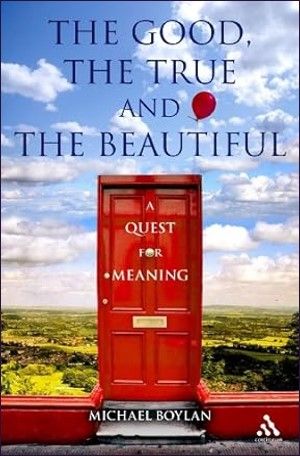
The Good, the True and the Beautiful: A Quest for Meaning

Utilitarianism
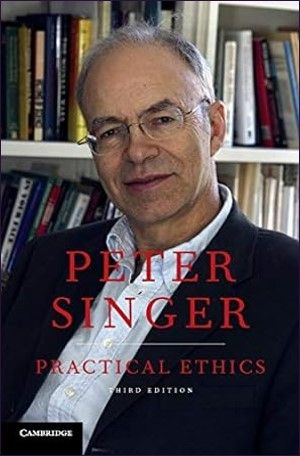
Practical Ethics

Ethics: History, Theory, and Contemporary Issues
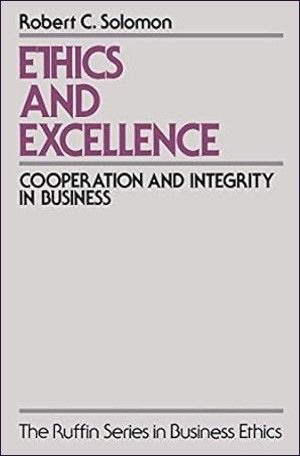
Ethics and Excellence: Cooperation and Integrity in Business

A Short History of Ethics: A History of Moral Philosophy from the Homeric Age to the Twentieth Century

Aristotle's Nicomachean Ethics

After Virtue: A Study in Moral Theory

Existential Flourishing: A Phenomenology of the Virtues

Virtues and Vices: And Other Essays in Moral Philosophy

Metaphysics as a Guide to Morals

The Oxford Handbook of Virtue

The Republic

Leviathan by Thomas Hobbes

The Social Contract

Rights of Man, Common Sense, and Other Political Writings

Justice: What's the Right Thing to Do?
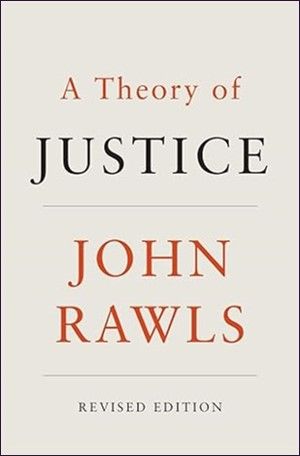
A Theory of Justice: Revised Edition

Political Ideologies: An Introduction

An Introduction to Political Philosophy
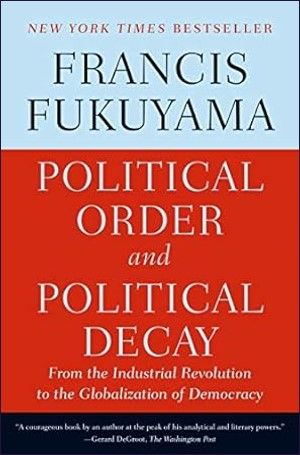
Political Order and Political Decay: From the Industrial Revolution to the Globalization of Democracy

A History of Economics: The Past as the Present

An Inquiry into the Nature and Causes of the Wealth of Nations
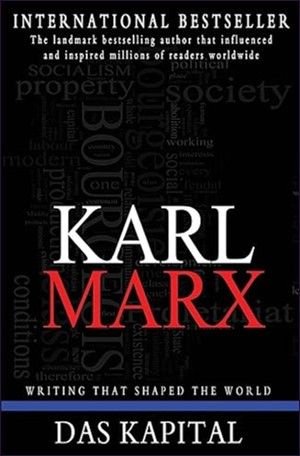
Das Kapital"

The Road to Serfdom
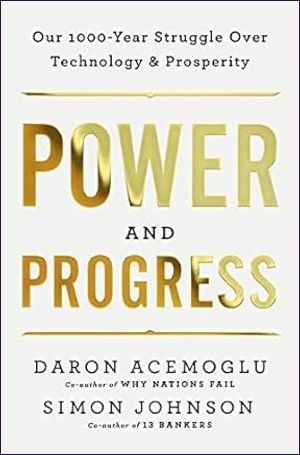
Power and Progress: Our Thousand-Year Struggle Over Technology and Prosperity
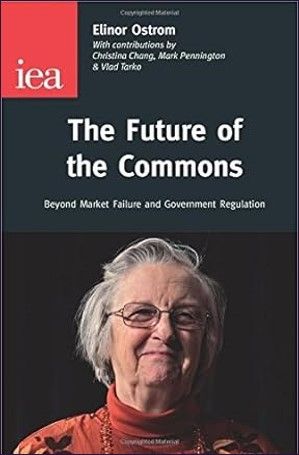
The Future of the Commons: Beyond Market Failure & Government Regulations
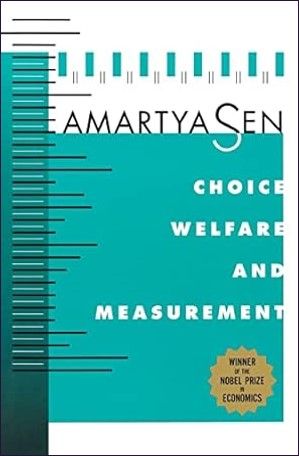
Choice, Welfare and Measurement
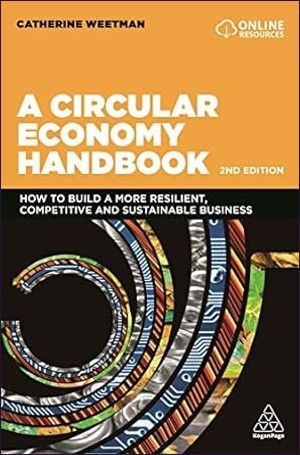
A Circular Economy Handbook: How to Build a More Resilient, Competitive and Sustainable Business
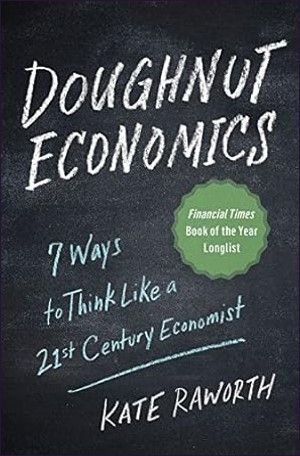
Doughnut Economics: Seven Ways to Think Like a 21st-Century Economist
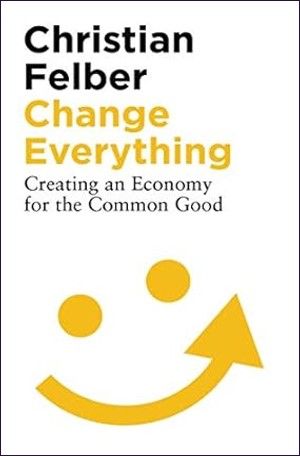
Change Everything: Creating an Economy for the Common Good
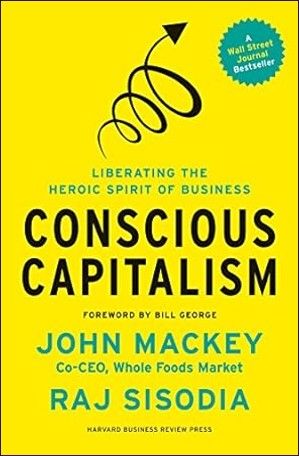
Conscious Capitalism, With a New Preface by the Authors: Liberating the Heroic Spirit of Business
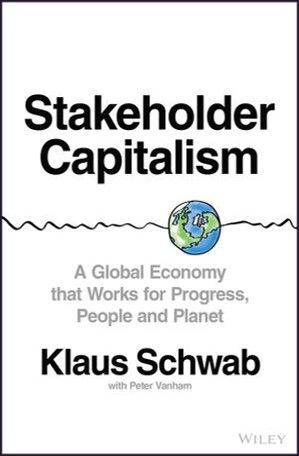
Stakeholder Capitalism: A Global Economy that Works for Progress, People and Planet

Civil Economy: Another Idea of the Market
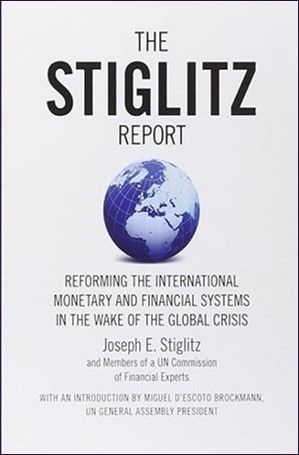
The Stiglitz Report: Reforming the International Monetary and Financial Systems in the Wake of the Global Crisis
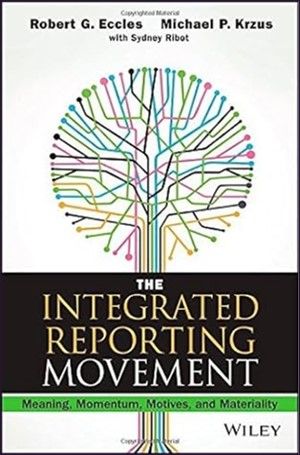
The Integrated Reporting Movement: Meaning, Momentum, Motives, and Materiality
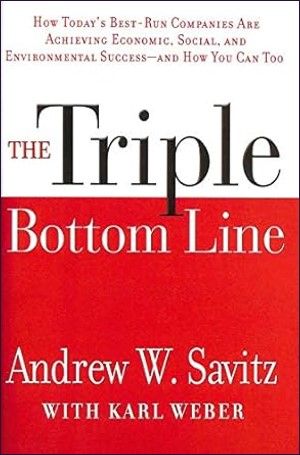
The Triple Bottom Line
Further explorations into alternative organisational models, organisational design and complexity

Meaningful Work
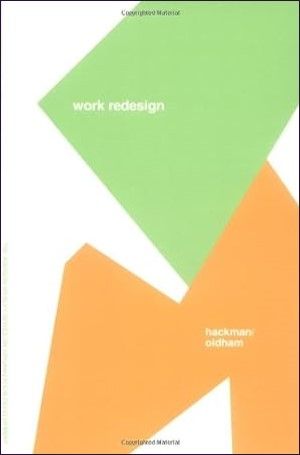
Work Redesign

Good Work

The Craftsman

The Oxford Handbook of Meaningful Work

Dialogic Organization Development

Small Arcs of Larger Circles
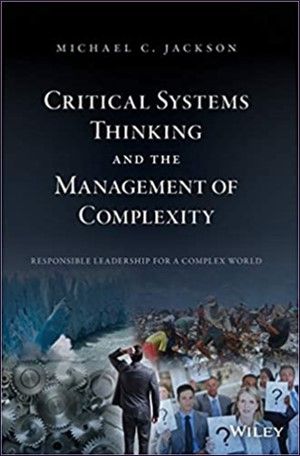
Critical Systems Thinking and the Management of Complexity

Cynefin - Weaving Sense-Making into the Fabric of Our World
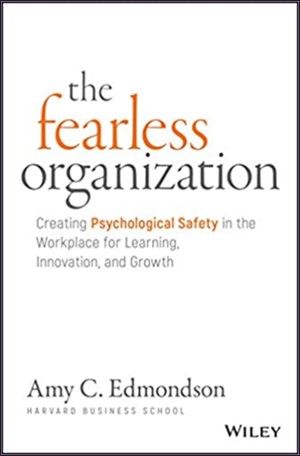
The Fearless Organization
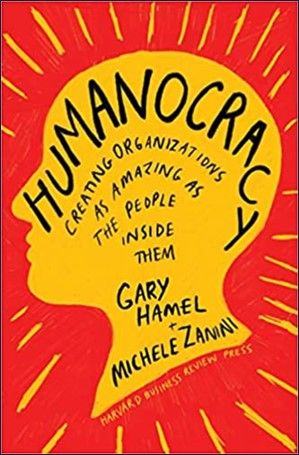
Humanocracy: Creating Organizations as Amazing as the People Inside Them

Many Voices One Song
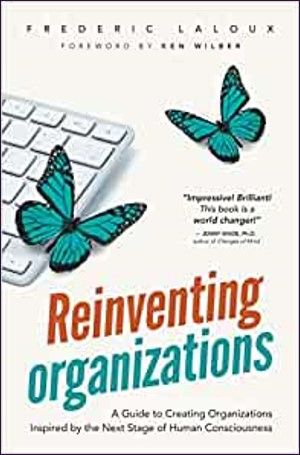
Reinventing Organizations
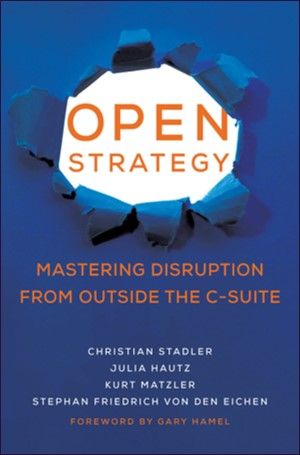
Open Strategy: Mastering Disruption from Outside the C-Suite
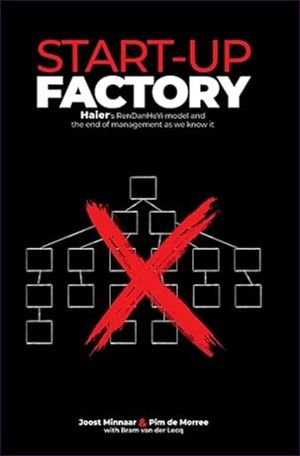
Start-up Factory: Haier's RenDanHeYi model and the end of management as we know it

Zero Distance: Management in the Quantum Age
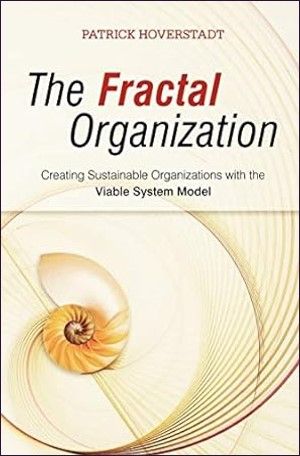
The Fractal Organization: Creating sustainable organizations with the Viable System Model

Platform for Change
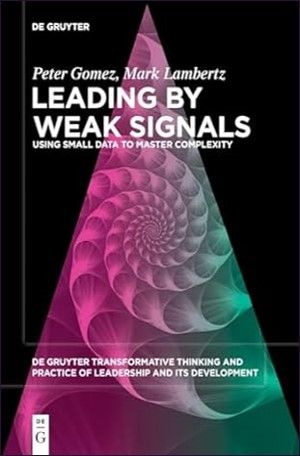
Leading by Weak Signals: Using Small Data to Master Complexity:

The Agile Organization: How to Build an Innovative, Sustainable and Resilient Business
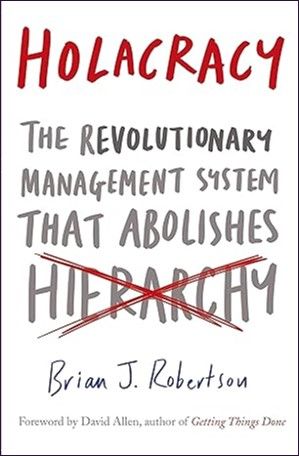
Holacracy: The Revolutionary Management System that Abolishes Hierarchy

Designing Organizations: Strategy, Structure, and Process at the Business Unit and Enterprise Levels

Collective Power: Patterns for a Self-Organized Future

Restoring Sanity: Practices to Awaken Generosity, Creativity, and Kindness in Ourselves and Our Organizations
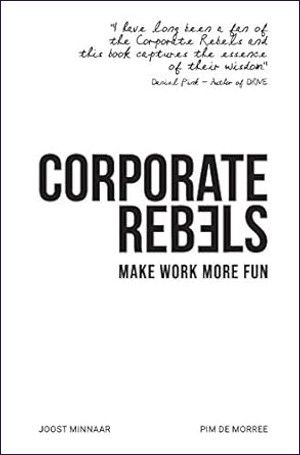
Corporate Rebels: Make work more fun

Joy, Inc.: How We Built a Workplace People Love

The Character Of A Corporation
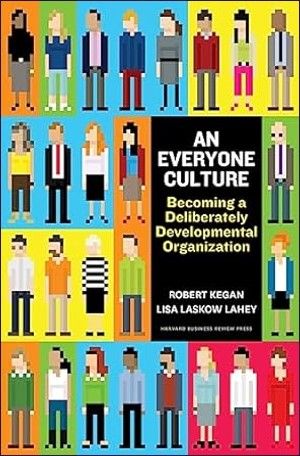
Everyone Culture: Becoming a Deliberately Developmental Organization
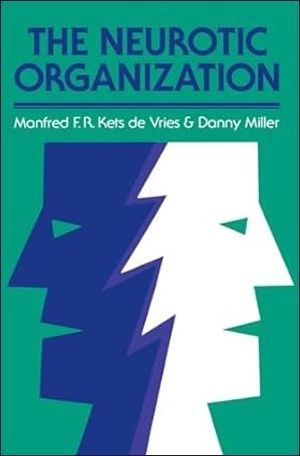
The Neurotic Organization

From Dependency to Autonomy: Studies in Organization and Change

Transforming Experience in Organisations: A Framework for Organisational Research and Consultancy

Understanding Organizations-Finally!

The Firm as a Collaborative Community: The Reconstruction of Trust in the Knowledge Economy

Virtue at Work: Ethics for Individuals, Managers, and Organizations

Corporate Governance and Ethics: An Aristotelian Perspective
Further explorations on developmental psychology
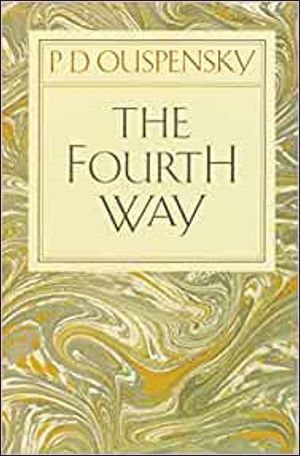
The Fourth Way: Teachings of G.I. Gurdjieff

The Developmental Psychology of Jean Piaget
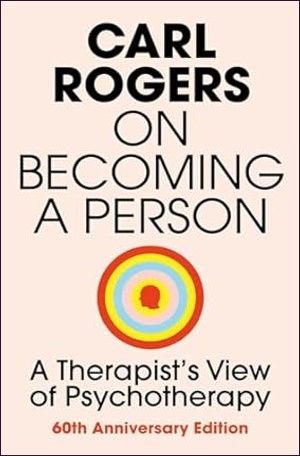
On Becoming a Person

Character Analysis
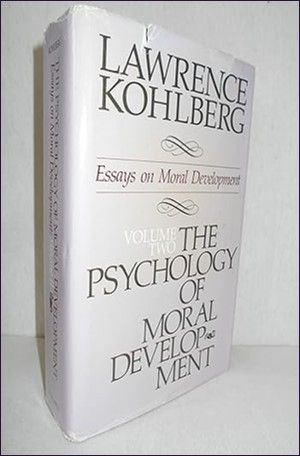
Psychology of Moral Development
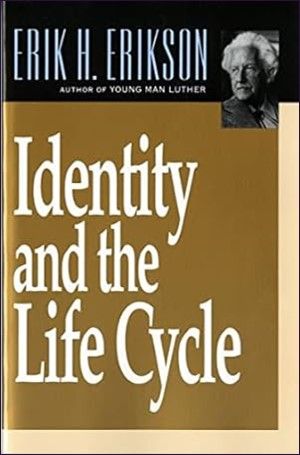
Identity & the Life Cycle
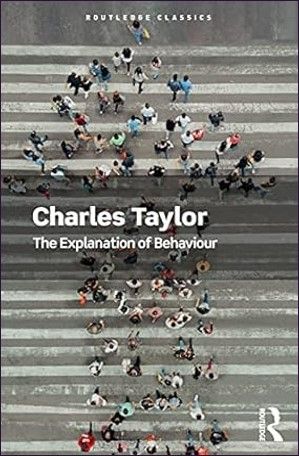
The Explanation of Behaviour

Oneself as Another
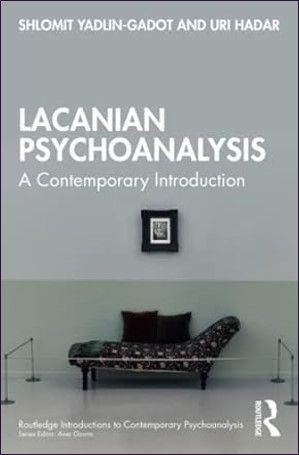
Lacanian Psychoanalysis: A Contemporary Introduction
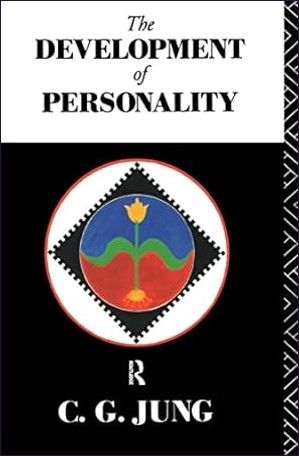
The Development of Personality
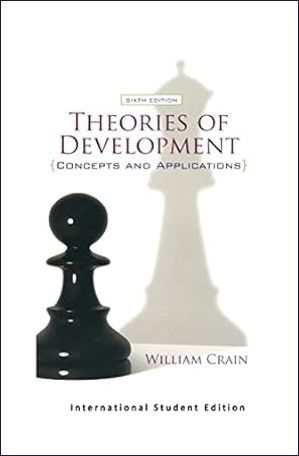
Theories of Development: Concepts and Applications
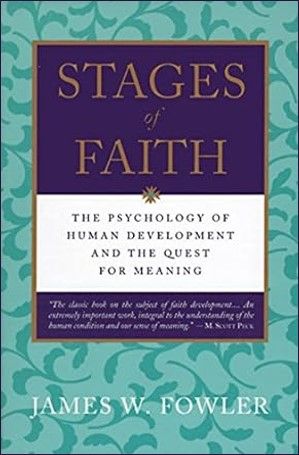
Stages of Faith: The Psychology of Human Development and the Quest for Meaning
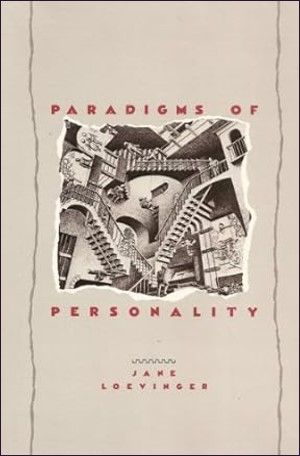
Paradigms of Personality
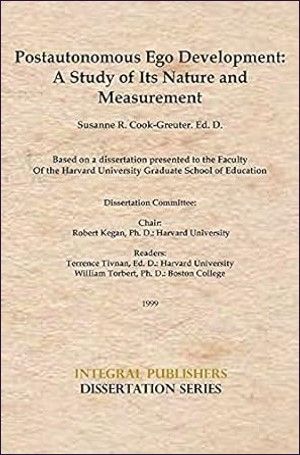
Postautonomous Ego Development: A Study of Its Nature and Measurement
Top Picks From Our Social Channels
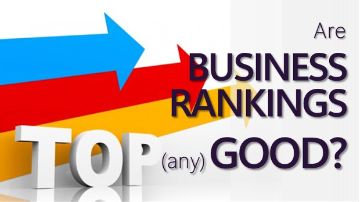

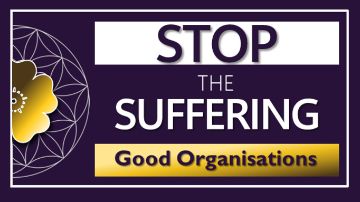
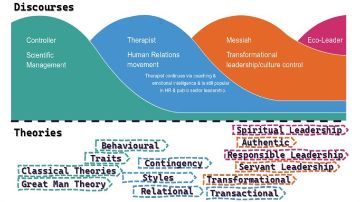
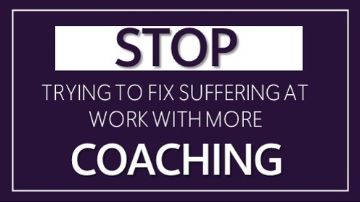
 .
.